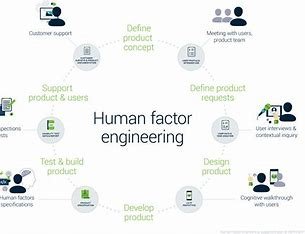Explore how human factors engineering enhances clinical trials for medical devices by improving usability, safety, and patient outcomes. Learn more at BioBoston Consulting.
Clinical trials play an essential role in medical devices development, ensuring they are safe and effective for their intended use. If the Clinical trials are not designed around the needs and capacities of users, the most rigorous testing will not prevent medical devices from failing. That is where human factors engineering comes in – the study and practice of designing devices that are usable and safe to use.
Human factors Engineering
It is an important part of medical device design and hence its significance in clinical trial cannot be overstated. Devices that are too hard to use, or uncomfortable for usage can result in patient harm and lack of adoption by healthcare professionals. Human Factors engineering can be implemented in the clinical trial process to enhance the usability and safety of medical devices, resulting in better patient outcomes, allowing for higher product adoption.
Improving the human factors elements of medical device user interfaces is an important area in which human factors engineering can be applied. Medical devices have user interfaces, which allow users to interact with the device effectively, within varying levels of satisfaction, and enabling them to control the medical functions delivered by the device.. Common mistakes: Lack a user-friendly interface that could result to defects and end-user frustrations, which may jeopardize patient safety. In doing so, the user interface design of medical devices can incorporate human factors engineering that make these products more user-friendly and safe.
Training:
Human factors engineering can also affect the design of training materials for medical devices. It is important to have training materials from healthcare professionals who knows how to use the device safely and effectively. Medical device companies can improve their devices user friendly feature and reduce faulty situations by using human factors engineering in the design of their training materials.
Human factors engineering can also influence the population of study participants chosen in clinical trials. Medical Device Companies can make sure, that the devices are tested in realistic situations and clinical trial results represent appropriate target user population by selecting participants representing them.
Conclusion
Human factors engineering is therefore essential in the clinical trial of medical devices. Investing in human factors engineering through the design of medical devices, review of training materials and in the selection of clinical trialists may also increase the adoption of products by optimizing usability and safety while ensuring better patient outcomes. As the landscape of medical device design expands, human factors engineering remains at its core,enabling device designers to create safer, more usable devices.
Reach out to us at BioBoston Consulting or visit our website to learn more about how we can support your organization in this time of crisis.


